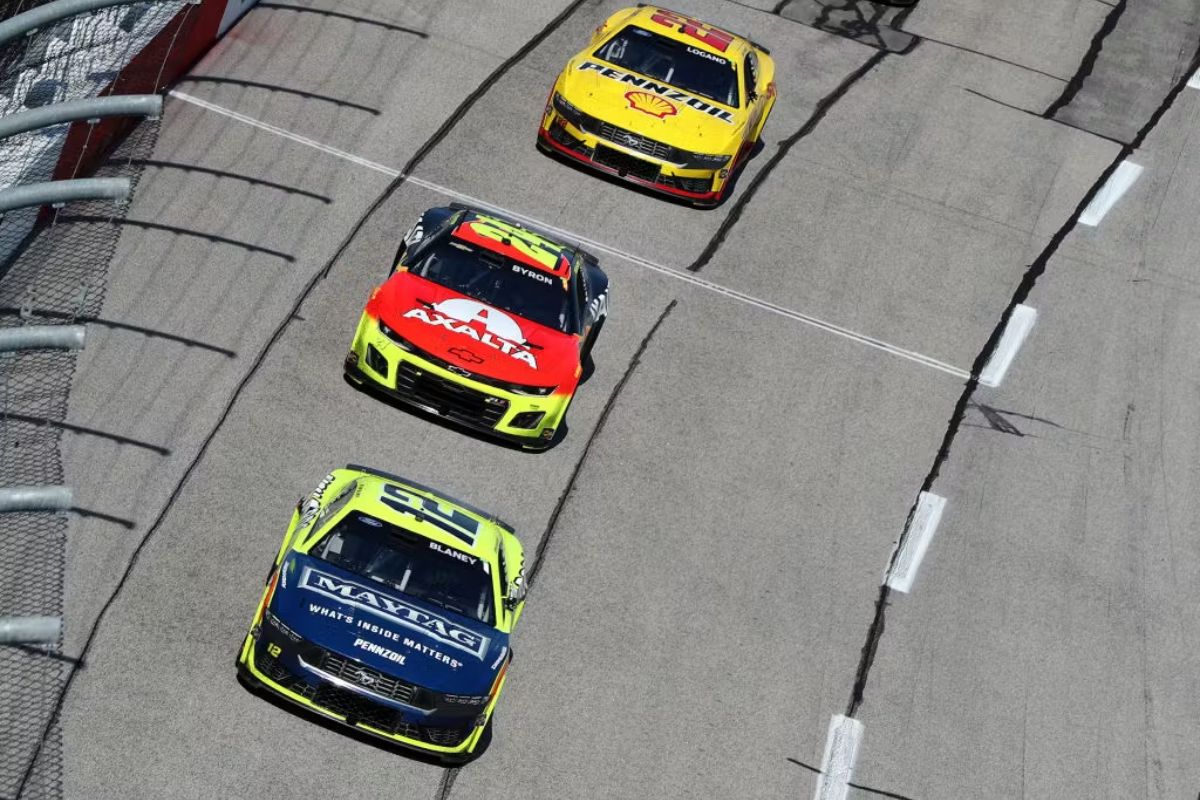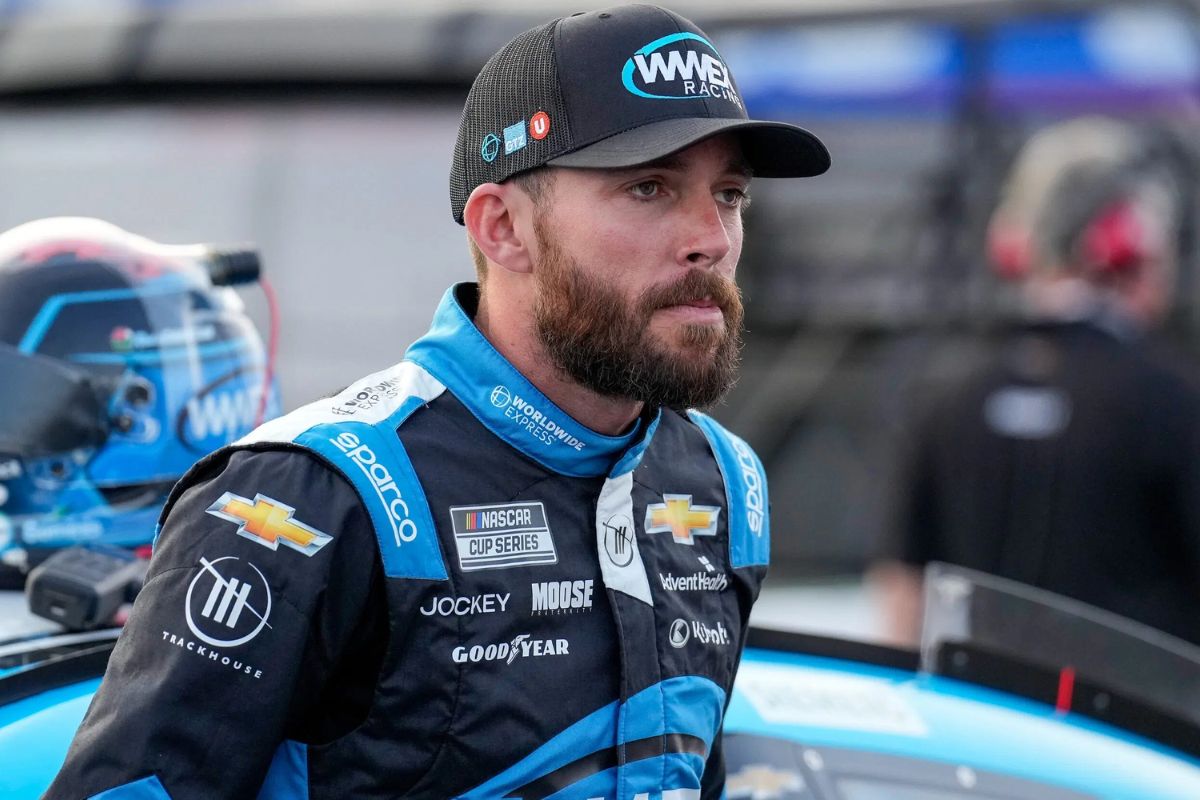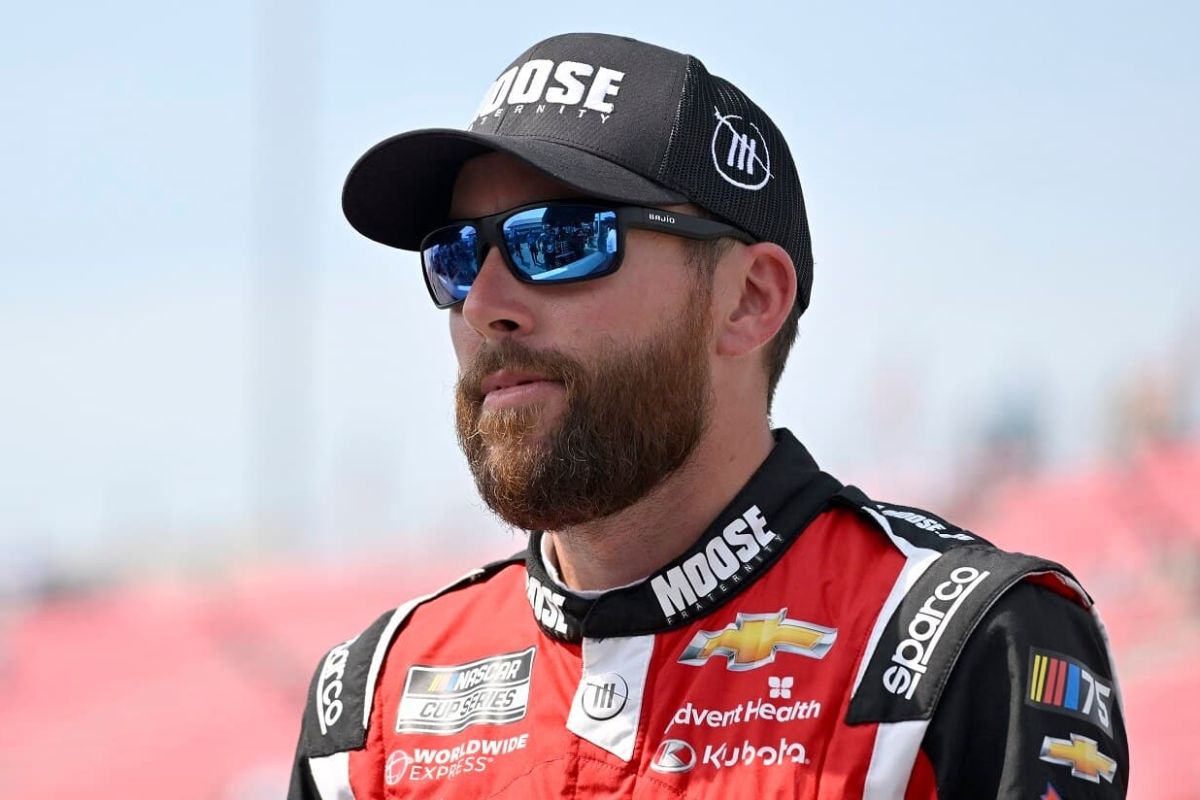Ross Chastain Opens up About NASCAR Charter Prices: In a recent introspection, Ross Chastain candidly acknowledged his early misjudgments regarding the value of NASCAR charters, admitting, “I wasn’t smart enough then.” This admission reflects Chastain’s personal growth and serves as a microcosm of the broader shifts within the NASCAR landscape, where charter prices have escalated dramatically. As ownership stakes become increasingly coveted and competitive, Chastain’s expedition raises pertinent questions about foresight and financial literacy in motorsport.
Key Highlights
- Ross Chastain reflects on his earlier lack of awareness regarding the financial value of NASCAR charters, recognizing their potential as lucrative investments.
- He acknowledges missed opportunities in charter ownership, highlighting the importance of foresight in motorsport investments.
- Chastain’s understanding of the dynamic market for charters has evolved, emphasizing the need for informed decision-making.
- The rising prices of charters, evidenced by recent high-profile sales, underscore their status as coveted assets in NASCAR.
- His experiences serve as a cautionary tale for aspiring drivers and team owners regarding the complexities of charter ownership.
Charter Negotiations Between NASCAR and Team Owners
In the evolving landscape of NASCAR, the ongoing charter negotiations between the sanctioning body and team owners reveal a considerable rift in perspectives on the future of the sport. The current charter system, which provides teams with guaranteed entry into races, has become a focal point of contention, as team owners are seeking not just security but a more substantial stake in the sport’s financial framework.
As the dynamics of motorsport shift, team owners are advocating for permanent charters, a demand rooted in the desire for stability and long-term investment in their operations. This push highlights a growing sentiment among team owners that they deserve a more equitable share of the revenue generated by NASCAR.
With the sport’s increasing commercialization and the diversifying revenue streams, team owners believe that their contributions to the sport warrant a more considerable financial return.
The negotiations have become a balancing act; while NASCAR seeks to maintain control and consistency within its framework, team owners argue that without an ownership stake in the charters, their long-term viability is jeopardized.
The current model, which has been in place for several years, is now being scrutinized for its sustainability and fairness. As the charter discussions unfold, they reflect broader trends in professional sports, where ownership and revenue-sharing models are evolving to meet the changing demands of investment and engagement.
The outcome of these negotiations will certainly shape the future of NASCAR and its teams, as both sides endeavor to find common ground.

The Increasing Value of Charters
The rising financial stakes in NASCAR have transformed charters into coveted assets within the competitive landscape of motorsport. These charters, fundamentally licenses allowing teams to compete at the highest level, have seen their values soar dramatically in recent years. For instance, Michael Jordan and Denny Hamlin’s 23XI Racing secured a charter for $13.5 million, while Spire Motorsports shelled out a staggering $40 million in 2023. Such figures underscore a remarkable increase, suggesting that charters are becoming increasingly central to the tactical planning of race teams.
Investors and team owners alike are acutely aware of this trend, as the charters not only provide a pathway to compete but also represent considerable financial investments that require renewal approximately every decade. This cyclical nature complicates valuations, as prospective buyers must navigate market fluctuations and the evolving landscape of NASCAR regulations. The scarcity of available charters further fuels their desirability, creating a competitive bidding environment that raises prices considerably.
Moreover, the growing interest from celebrities and business moguls in NASCAR has only intensified the competition for these assets. The influx of capital from high-profile ownership groups may contribute to a perception of charters as not just operational necessities, but as valuable commodities that can appreciate over time.
Ross Chastain’s Missed Investment Opportunity
Amidst the escalating value of NASCAR charters, Ross Chastain finds himself reflecting on what could have been—a missed opportunity that weighs heavily in his mind. As the sport continues to evolve, the financial implications of charter ownership have become increasingly notable, presenting a lucrative investment landscape that Chastain now recognizes as a turning point in his career.
Originally launched with the intent to stabilize team operations, charters have skyrocketed in value, attracting interest not just from team owners but also from investors. Chastain, with a net worth of $4 million, acknowledges that he was not perceptive enough to capitalize on this burgeoning market when charters initially emerged. His candid admission highlights a broader theme within NASCAR: the intersection of racing passion and financial insight.
The regret stems from a combination of youthful naivety and the fast-paced nature of the sport. Chastain’s experience serves as a cautionary tale for aspiring team owners and drivers alike, illustrating how pivotal moments can slip by unnoticed in a high-stakes environment.
As he navigates the current landscape, Chastain’s reflections reveal a deeper understanding of the importance of tactical investment within NASCAR, showcasing how the charters have transformed from mere operational necessities into coveted assets.
Chastain’s Reflection on Charter Business
Reflecting on the evolving landscape of NASCAR, Ross Chastain’s insights into the charter business reveal a blend of regret and realization. His candid acknowledgment of missed investment opportunities highlights the complexities of maneuvering the financial aspects of the sport. In a recent press conference, Chastain expressed a sense of hindsight, admitting, “I wasn’t smart enough then; maybe not smart enough now.” This contemplative stance opens a dialogue about the implications of charter ownership within the racing community.
“I’m not in the charter business. I look back, and I probably wish that I would’ve, right? And that’s any investment that you look back in hindsight and it would’ve been good when charters first came out as investments. I wasn’t smart enough then; maybe not smart enough now, I don’t know.” – Chastain
The charter system, initially designed to stabilize team operations, has transformed into a lucrative investment vehicle. Chastain’s reflections invite a deeper examination of the charter business landscape, particularly as it relates to the financial dynamics of NASCAR.
“It’s worked out good for some and not so good for others. I think it’s been a win for everybody though but I don’t study it, and I get information after it has already happened.” – Chastain
As the sport continues to evolve, Chastain’s reflections serve as a poignant reminder of the importance of tactical foresight in motorsport investments. His insights encourage both current and aspiring stakeholders to critically assess the charter business’s path, ensuring they are well-equipped to maneuver its future challenges and opportunities.
Chastain’s Focus on Racing Amidst Playoff Pressure
With the complexities of the charter business weighing on his mind, Ross Chastain shifts his focus back to the track as the NASCAR playoffs approach. This change is not merely a shift of scenery; it is a critical pivot in a high-stakes environment where every decision holds crucial implications. Currently positioned at 13th on the NASCAR Cup Series Standings, Chastain’s team lacks a victory to secure their postseason berth, forcing them to strategize effectively in the remaining two races.
Chastain faces a conundrum: should he race aggressively for a win or adopt a more conservative point-gathering approach? The latter has historically yielded success for teams in similar predicaments, such as Bubba Wallace and the #23 team. However, Chastain’s instinctive racecraft takes precedence over meticulous planning.
He highlights the importance of racing without the burden of strategy weighing heavily on his mind, asserting, “It’s not possible for me, so we just go racing.” This philosophy encapsulates his approach, blending raw talent with instinctual decision-making.
“Won’t be in my mind while I’m racing. I’m sure Chris has said it; the other guys have said it; you just can’t do that. It’s not possible for me, so we just go racing.” – Chastain
As he heads into the pivotal Daytona and Darlington races, Chastain’s ability to harness his experience and creativity will be paramount. The “melon man” is known for his capacity to execute unconventional maneuvers under pressure, and he will certainly need to channel that ingenuity to navigate the challenges ahead.
News in Brief: Ross Chastain Opens up About NASCAR Charter Prices
The evolution of NASCAR charter ownership highlights the critical importance of financial literacy and tactical foresight within the motorsport industry. Chastain’s reflections serve as a poignant reminder of the rapidly changing landscape, where understanding the economic implications of charter ownership can greatly impact competitive advantage. As charter prices continue to escalate, the need for informed decision-making becomes paramount, shaping the future of teams and their financial viability in an increasingly competitive environment.
ALSO READ: Ross Chastain’s Season Struggles Lead HMS Insider to Turn Anti-Chastain


